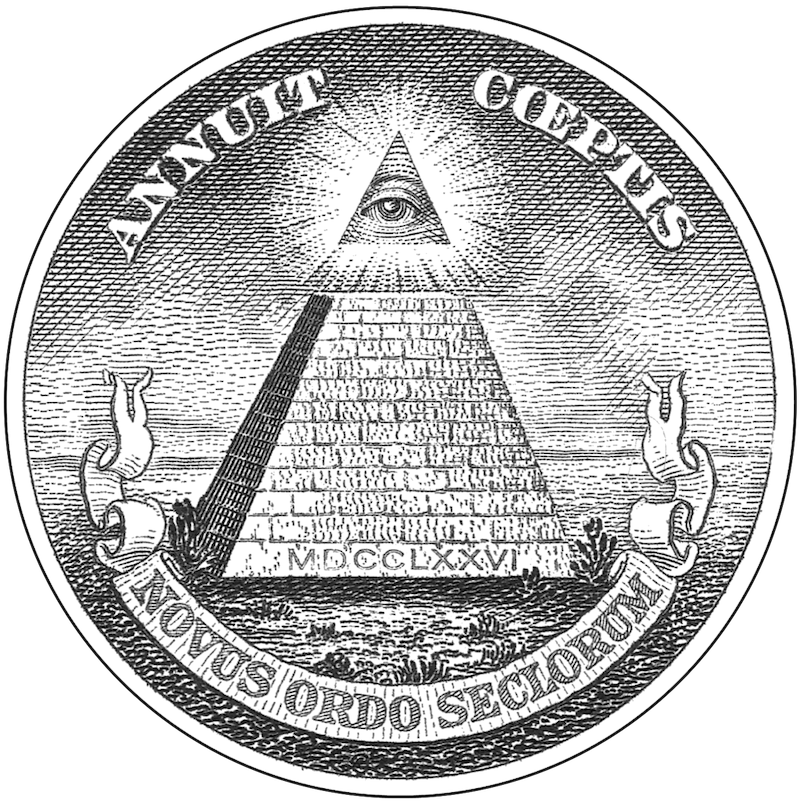
In defence of conspiracy theories
- Martin Enlund
- 11/11/23
the honorable men whose daggers have stabbed Caesar
– William Shakespeare Julius Ceasar
TL;DR: Throughout history, conspiracies have existed, from the honorable men whose daggers have stabbed Caesar, to the Black Hands’ Gavrilo Princip, whose shot triggered the First World War. It is, therefore, rational to entertain certain conspiracy theories and irrational to outright reject them a priori.
The bad reputation of conspiracy theories is perplexing. People conspire. And since people conspire, it cannot be wrong to believe that they do so, and therefore, not all conspiracy theories can be assumed to be false a priori.
Note: this article is available in Swedish
The word “conspiracy” has its origin in the Latin verb “conspirare,” which means “to breathe together.” The concept evolved to mean that people act in agreement or secretly plan something together. An essential criterion involves nefarious intentions or at least some behaviours that could be deemed unethical.
Professor Charles Pigden has pointed out that:
… nobody half-way sane supposes that the events of 9/11 were not due to some conspiracy or other. (To think that you would have to suppose that the perpetrators assembled in the planes quite by chance and that on a sudden, by coincidence, it struck them all as neat idea to hijack the planes and ram them into the Twin Towers, the Whitehouse and the Pentagon, with the aid of other perpetrators who, presumably, they had never met before.) Thus, unless you think that nightly news is not merely misguided, biased or selective but a pack of lies from start to finish, you are pretty well bound to be a conspiracy theorist.
In short, believing in conspiracy theories does not necessarily have to be wrong; the question should be about their truth value.
During the onset of the COVID-19 pandemic, speculation arose that the virus had leaked from a laboratory in the Chinese city of Wuhan. The view that the virus did not have a natural origin quickly came to be “strongly condemned as a conspiracy theory” by a group of scientists in a letter published in the scientific journal The Lancet. The dismissal had an “intimidating” effect on scientific research and on the scientific community, according to critics.
The Lancet letter, where scientists accused others of spreading conspiracy theories, can, however, be said to have arisen from its own conspiracy where researchers associated with the organisation EcoHealth Alliance concealed their involvement in the writing and dissemination of the letter without external oversight. In subsequently published emails, it has been revealed that individuals discussed not only concealing their engagement, but that they wanted the letter to provide “some distance from” the organisation, and “put it out in a way that doesn’t link it back to our collaboration…”.
The fact that the organisation behind the letter has also received millions of taxpayer’s dollars in funding for genetic manipulation of viruses, including in Wuhan, makes the whole situation remarkable.
It is still unclear whether the virus may have leaked from the laboratory in question, but today, the hypothesis can be examined without the same negative connotations as before.
So, when we use the term “conspiracy theory” pejoratively, we suggest that there is something wrong with believing in conspiracies or wanting to investigate if they are taking place. This not only silences the victims of real conspiracies and those who believe that conspiracies are happening but it also narrows Overton’s window in a way that makes it easier for conspirators to conspire. Therefore, labelling people as conspiracy theorists should in part be seen as a way to prevent the truth from emerging. Who stands to benefit from that?
If you wish to subscribe, sign up here!
Cover image depicting pyramid with the all-seeing eye on the back side of the US 1-Dollar bill was fetched from Wikimedia Commons.


